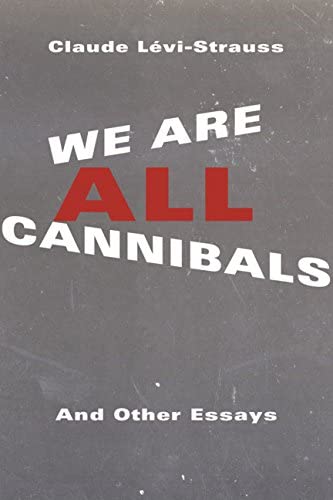
We Are All Cannibals
And Other Essays
کتاب های مرتبط
- اطلاعات
- نقد و بررسی
- دیدگاه کاربران
نقد و بررسی

January 15, 2016
Previously ungathered pieces by the eminent French anthropologist, all addressing in some way the vexing question of relativism. That question, as Levi-Strauss (The Other Face of the Moon, 2013, etc.) formulated it, goes something like this: the job of the Enlightenment, out of which anthropology grows, is to devise the rules that describe a rational society of the sort that all societies should wish to become. At the same time, relativism "rejects any absolute criterion by which a culture could allow itself to judge different cultures." Thus, there's no such thing as an advanced versus a primitive society; thus, as the title suggests, we feast on one another's flesh even though we're not supposed to. Relativism does not keep us from contesting matters on cultural grounds, of course: Levi-Strauss opens with an episode from the war on Christmas, namely a revolt 65-odd years ago in which the good citizens of Dijon, France, hanged the foreign character of Santa Claus from a rafter in the city cathedral. Though the pieces in this collection were published in the Italian newspaper La Repubblica, that doesn't keep Levi-Strauss from entering into difficult thickets of thought. With ever an eye on the binary oppositions of structuralism, he notes that the Christmas incident illustrates the functions of society along "a dual rhythm of increased solidarity and exacerbated antagonism." So much the better if that dual rhythm can be put to work pounding the other, though in the absence of the foreign, homegrown scapegoats will do. Sometimes clearly, sometimes behind layers of technical language, Levi-Strauss ponders big questions: what does it mean to be "civilized"? What are the "modalities of cannibalism," and why should we care? Presciently, he observes that even though we supposedly live in a global civilization, that does nothing at all to prevent those cultural collisions--and indeed, it "makes the clash between external differences sharper." Though representing a tradition that is now considered old-fashioned, Levi-Strauss was quite the revolutionary in his day. These varied, smart pieces show why.
COPYRIGHT(2016) Kirkus Reviews, ALL RIGHTS RESERVED.

























دیدگاه کاربران